CSO Interventions at Asia Pacific Intergovernmental Meeting on Beijing+25 Review
28th November
YK Sandhya, Sahyog, India

Y K Sandhya from Sahyog India Intervenes on Behalf of CSOs/Photo Credit: Ya Gan
28h November, 2019
Bangkok, Thailand
Thank you Chair
Accountability is a State obligation.
It is the State’s obligation to ensure protection, safety, security and autonomy of all women human rights defenders to act in the interest of women and girls’ human rights and gender equality. Women’s and girls’ participation must be meaningful and visible, particularly those from marginalised communities. They are not mere beneficiaries. They are contributors and are integral to accountability processes.
We Call on Member States to:
1. Implement mechanisms and laws to address the rising violence occurring in diverse ways across the life-course of women and girls affecting them in their multiple identities and roles.
2. Ensure implementation of UNSCR1325 on Women Peace and Security and subsequent resolutions.
3. Allocate adequate finance and resources to create and strengthen the gender architecture, including national women’s machineries, audit and human rights institutions.
4. Ensure robust, transparent, participatory and active monitoring mechanisms from governments at all levels. Civil society must be able to access government policies, data and decision-making processes.
5. Collect and make publicly available intersectional gender and age – disaggregated data.
6. Regulate the private sector and enterprises by bringing them under human rights mechanisms.
7. Ensure all national policies are inclusive and non-discriminatory and sensitive to the rights of all, to uphold the highest standard of human rights, including SRHR.
It is unacceptable that civil society representatives are prevented from attending decision making forums by their own governments. Thank you.
Ruth Manorama, NAWO, India
Ruth Manorama from NAWO, India Intervenes on Behalf of CSOs/Photo Credit: Ya Gan

28h November, 2019
Bangkok, Thailand
Good morning. My name is Ruth Manorama and I speak on behalf of the civil society.
• Expand the scope and spectrum of VAWG to take into consideration the emerging, and targeted forms of violence against women human rights defenders and all marginalised groups in their full diversity as mentioned in our CSO statement.
• To support the recommendation of the UN Special Rapporteur on Violence Against Women to uphold the absence of consent as a legal standard in Rape Laws.
• Intensify implementation of legislative protection, provide financing for restorative justice and social support for women and girl survivors of violence and women human rights defenders.
• Fulfill commitments to women Peace and security agenda in line with Human Rights Resolution including 1325 on women, peace and security and other subsequent resolutions, and ensure the participation of women’s groups.
• Uphold Sexualilty and Reproductive Health and Rights of women and girls in all their diversity, including access to evidence and rights-based, non-discriminatory, and gender-sensitive CSE in all forms of education; repeal discriminatory laws that denies access to information services, including decrminalisation of abortion, sex work, and consensual same-sex relations.
Cham Perez, Center for Women’s Resources, Philippines
Cham Perez from CWR, Philippines Intervenes on Behalf of CSOs/Photo Credit: Ya Gan

28h November, 2019
Bangkok, Thailand
Good morning. My name is Cielto Perez and I speak on behalf of the civil society.
The current neoliberal economic system means that Governments have failed to protect the rights of women and girls in the world of work. The inclusion of the private sector, as mentioned by one of the panelists this morning, will only perpetuate multinational corporations’ access to women’s underpaid and overworked labour, while also continuing the exploitation of patriarchal gender dynamics that burden girls and women.
So more private sector involvement is not the solution, but recognising and redistributing women’s unpaid work is. So legislating and implementing the ILO living wage agenda, addressing gendered labour market segregation and the gender pay gap is what needs to be done. We feel more can be said of coverage of informal, including homeworkers, migrant workers and refugees and stateless people, regardless of status, in labour legislation and universal social protection floors, as well as the ratification of C189.
We call on Governments in Asia Pacific to:
o Implement, and uphold “equal pay for work of equal value”
o End violence and harassment in the world of work, including through the ratification of C190
o Recognise, reduce and redistribute unpaid work
o Ensure accessible, quality, and gender responsive public services and social protection
o Ensure private sector accountability
o Ensure that migration for labour is a choice and not a crisis mitigation strategy
We urge the member states to ensure the primacy of women’s human rights in the world of work. Because if women stop, the world stops.
________________________________________
27th November
Saku, Center for Human Rights and Development (CHRD), Mongolia

Saku from CHRD, Mongolia Intervenes on Behalf of CSOs/Photo Credit: Ya Gan
27th November, 2019
Bangkok, Thailand
1. Thank you chair. I speak on behalf of over 230 civil society organisations represented in this meeting.
2. We have heard many member states speak about partnership. Partnership must be premised on the basis of accountability and the principle of international solidarity and multilateralism as enshrined in key international instruments including the Charter of the United Nations. (the Covenant on Economic, Social and Cultural Rights, the Declaration on the Right to Development, in the Rio Declaration, and in the Millennium Declaration). The Millennium Declaration specifies the principles: “Global challenges must be managed in a way that distributes the costs and burdens fairly in accordance with basic principles of equity and social justice. Those who suffer or who benefit least deserve help from those who benefit most.”
3. We encourage ESCAP and member states to consider convening a regional conference on women every 2-3 years, learning from the experience of Latin American and Carribean countries, as a dedicated space for discussion, periodic assessments and concrete actions to advance women’s human rights, gender equality and Development Justice.
4. Overall, we also look forward to greater resources and institutional support for UN Women to perform its normative, operational and coordination mandate, since it was established as part of the global gender architecture as the UN entity for gender equality and empowerment of women.


No comment yet, add your voice below!